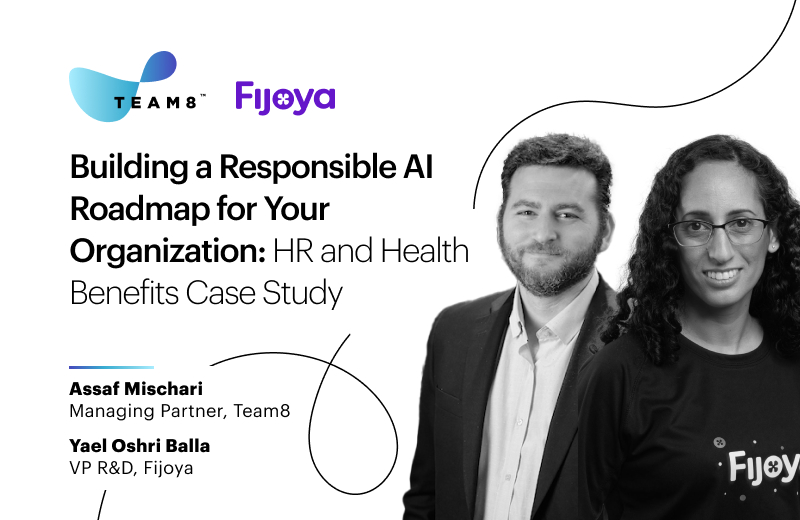Building a Responsible AI Roadmap for Your Organization: HR and Health Benefits Case Study

The acceleration of AI innovation has generated a sense of urgency for employers to integrate AI responsibly into their operations. In the realm of employee health benefits, handling sensitive data and ensuring fair, unbiased decisions is paramount. Over the past two years, many employers have grappled with two recurring strategies to mitigate AI-related risks: focusing on smaller experiments with clear use cases and adopting a deliberate approach to AI governance.
In this blog, we explain the concept of AI governance and how to implement a framework for best practice with third party innovators in the realm of employee health benefits.
Practical Guide for Employers: Questions to Ask and Responsible AI Standards to Expect from Third-Party Vendors
Governance should be part of an AI strategy from the outset rather than an afterthought, and this means working with responsible innovators who have long left behind the age of ‘move fast and break things’.
Implementing AI governance in a health benefits platform requires a structured approach to ensure vendors adhere to best practices. Here are the key dimensions and the questions to ask of standards to expect:
Fair and Unbiased Recommendations:
- Question to Ask: Does your system use AI to make recommendations to my employees and, if so, how do you ensure these recommendations are fair and unbiased across different employee demographics?
- Best Practice: Regularly validate the AI recommendation engine using bias and fairness tests to ensure equitable outcomes. Employ human-in-the-loop oversight to maintain fairness and avoid biased outcomes.
Transparent and Explainable AI:
- Question to Ask: How transparent are your AI-driven recommendations, and can employees understand why specific suggestions are made?
- Best Practice: Provide clear explanations for AI-driven recommendations. Ensure that the platform explains why a particular health service is suggested and offers feedback channels for employees to report discrepancies, helping refine the AI system.
Accountability and Monitoring:
- Question to Ask: What measures are in place to monitor AI performance and ensure ethical operations?
- Best Practice: Establish a dedicated team to oversee AI performance and ethics. This team should review AI decisions, address issues, and maintain an audit trail of AI processes to ensure the system operates responsibly and ethically.
Robust and Reliable Performance:
- Question to Ask: How do you ensure the reliability and robustness of your AI systems, especially in handling unexpected scenarios?
- Best Practice: Conduct regular risk assessments and implement fallback mechanisms to handle unexpected scenarios. If the AI system fails to process a health benefit claim, a manual override process should be in place to ensure continuous service.
Privacy and Data Protection:
- Question to Ask: How do you ensure compliance with data regulations and protect sensitive employee information?
- Best Practice: Achieve compliance with standards such as SOC 2 and HIPAA. Anonymize user data for AI recommendations and implement strict access controls. Use only pre-approved data labels, minimizing data storage and protecting user privacy.
Security Measures:
- Question to Ask: What security measures are in place to protect AI systems from cybersecurity risks?
- Best Practice: Adopt secure engineering practices and conduct regular security audits. Perform adversarial testing to identify and address vulnerabilities. Implement private cloud deployments and limit data sharing to enhance security.
HR leaders can effectively implement AI governance in their health benefits platforms by asking these questions and ensuring AI vendors adhere to these best practices. This structured approach not only mitigates risks but also maximizes the potential of AI to transform employee health benefits management.
It’s important to note that responsible AI governance doesn’t limit companies. In fact, quite the opposite is true. By providing a structured framework, AI governance enables innovative teams to confidently generate and test new ideas, making significant strides towards solving important problems. Responsible governance ensures that AI development is unbiased, safe, ethical, and transparent, unleashing the full potential of AI technology in a trustworthy and compliant way.
At the end of the day, AI governance must be met with innovative product development that truly makes a difference to the organization.




